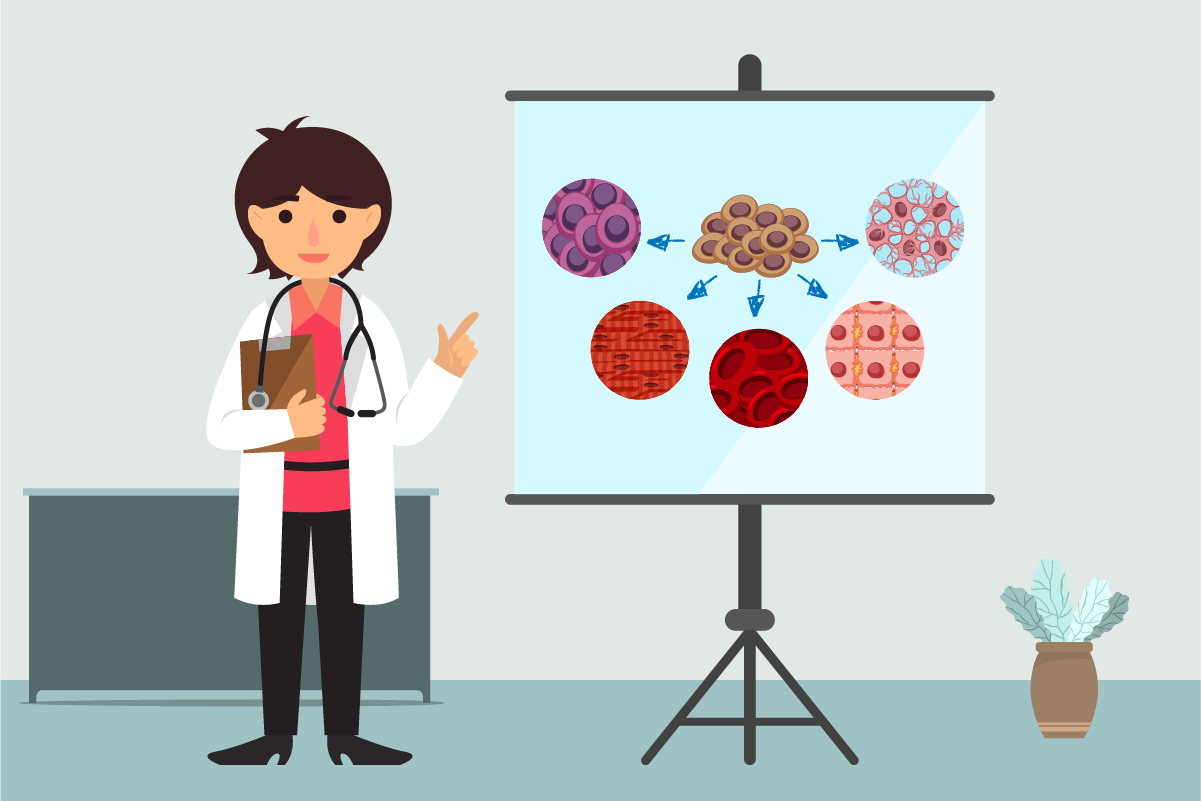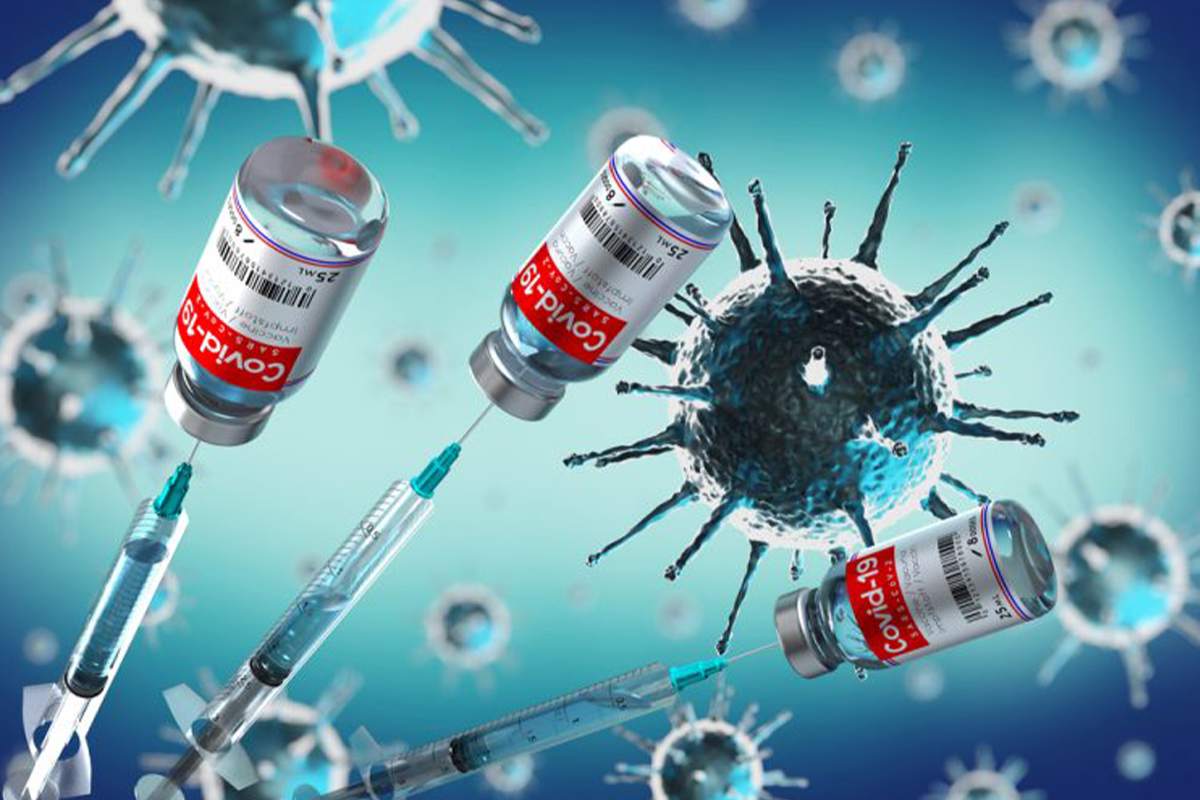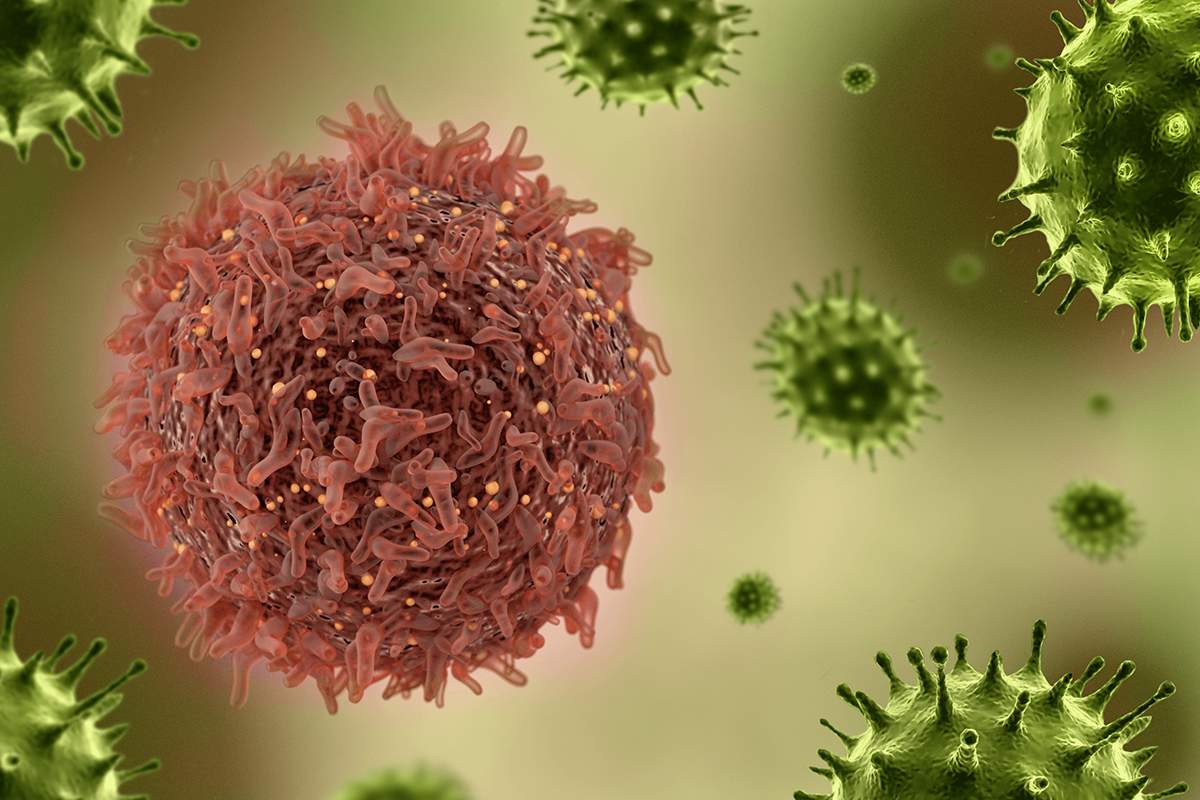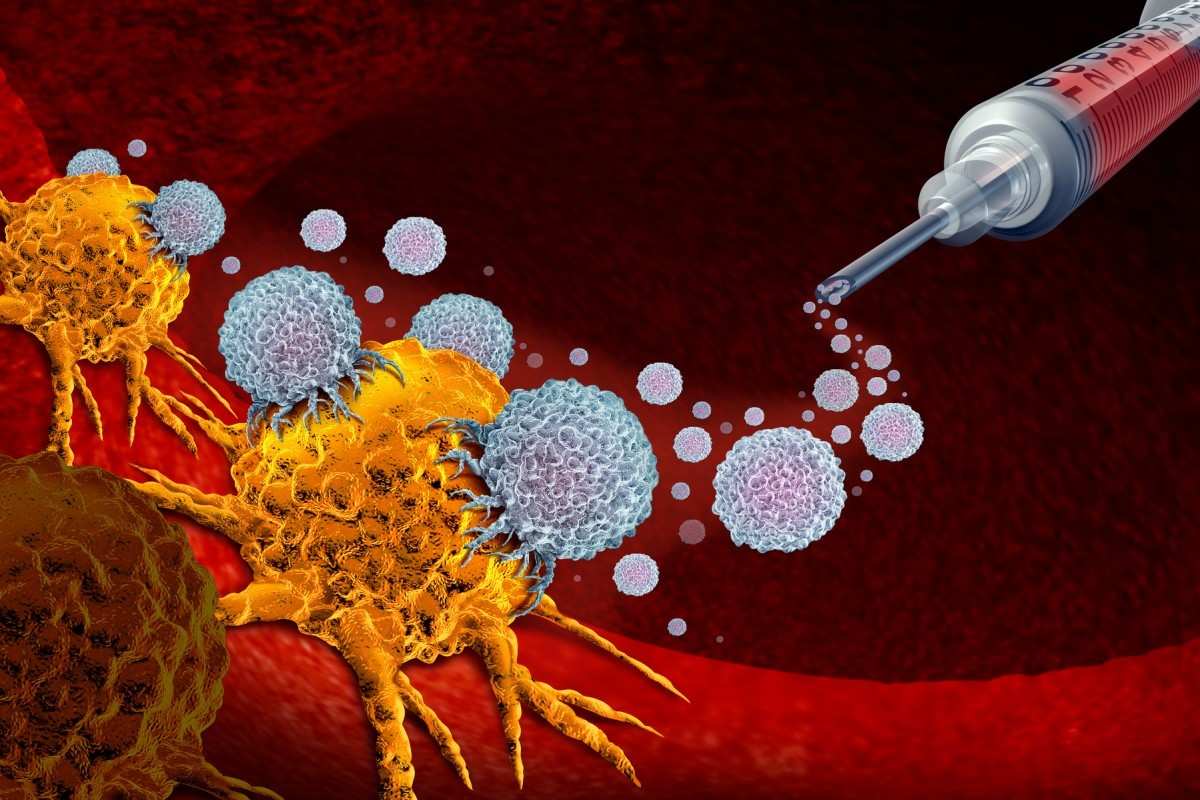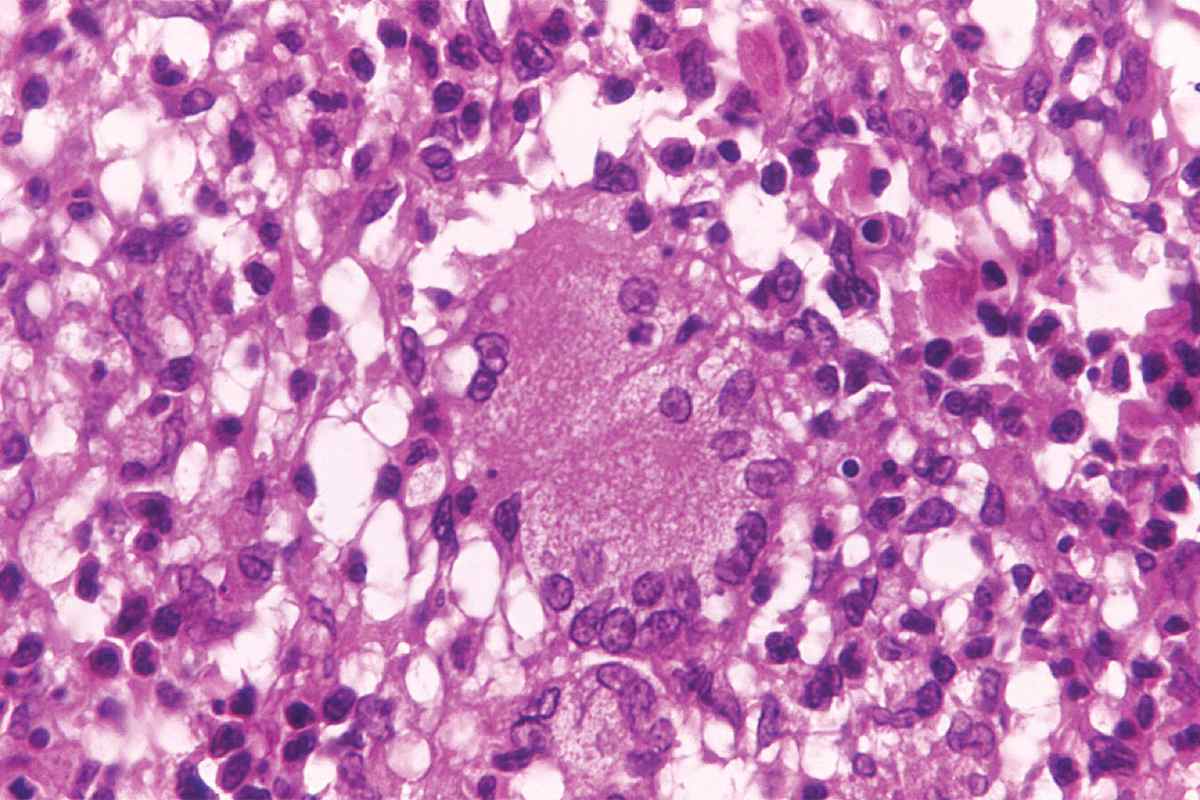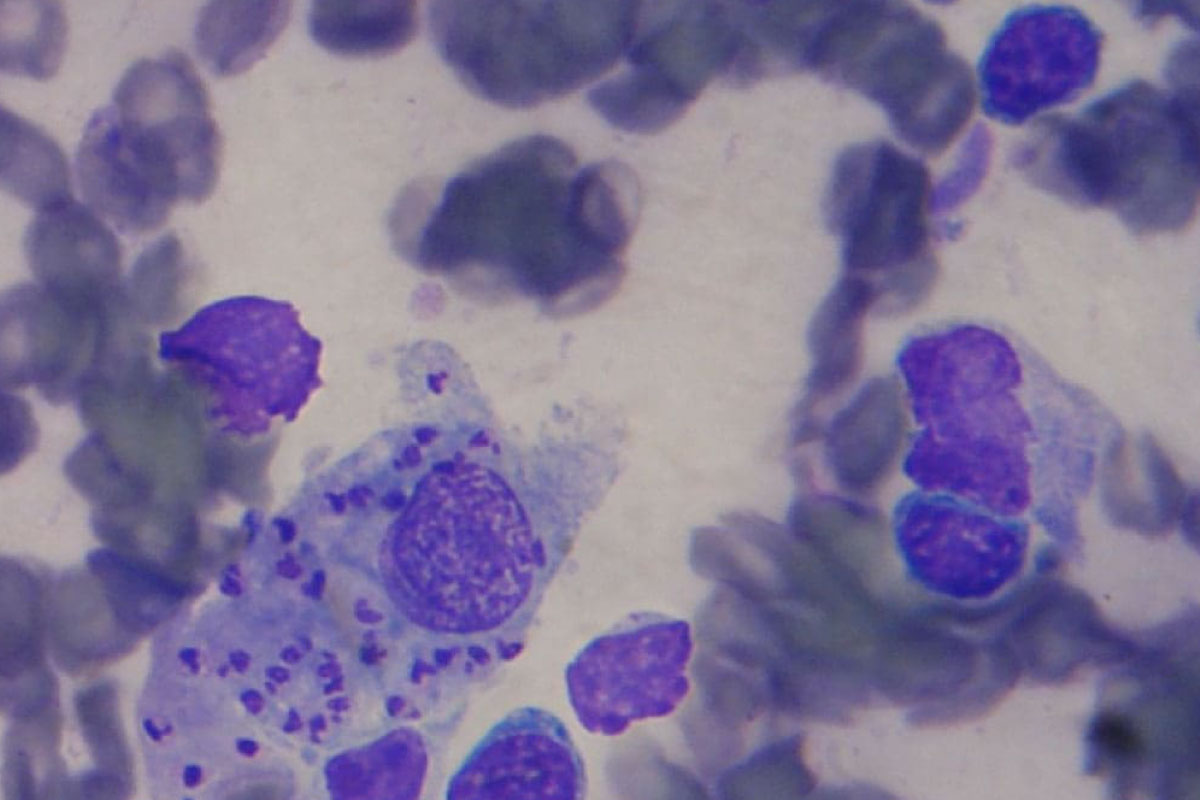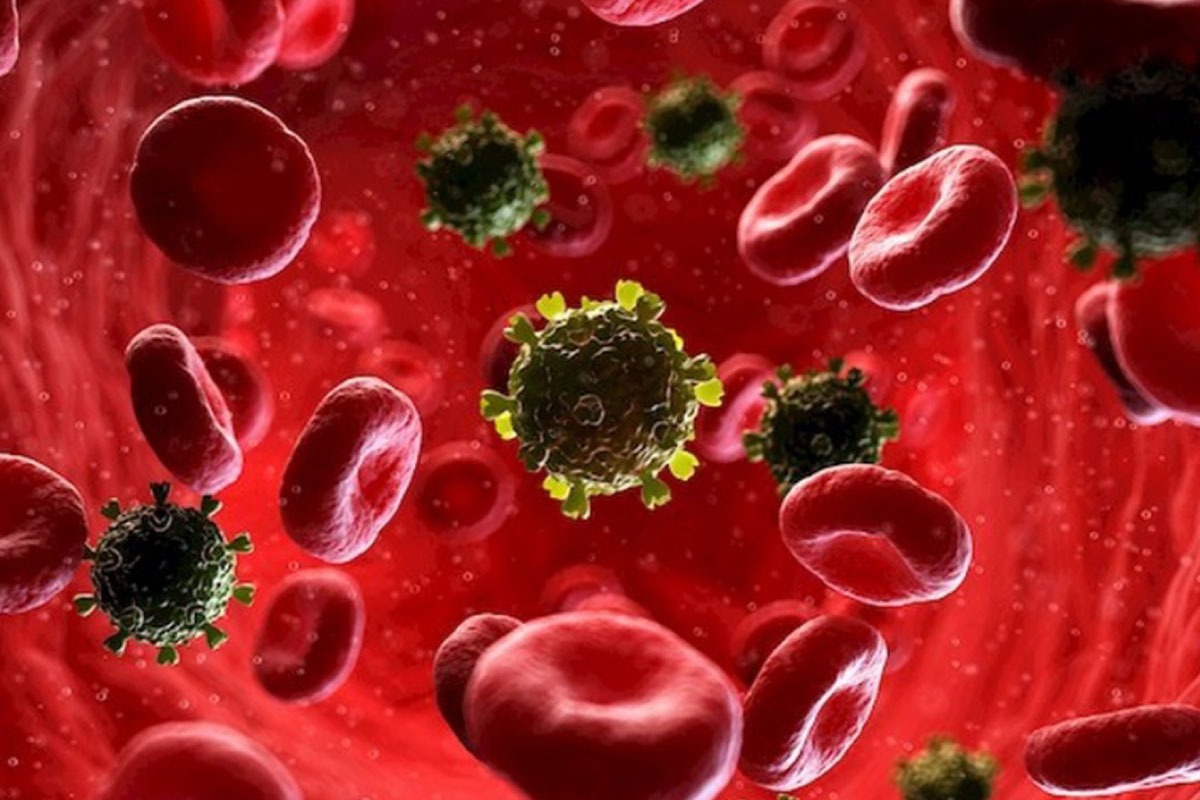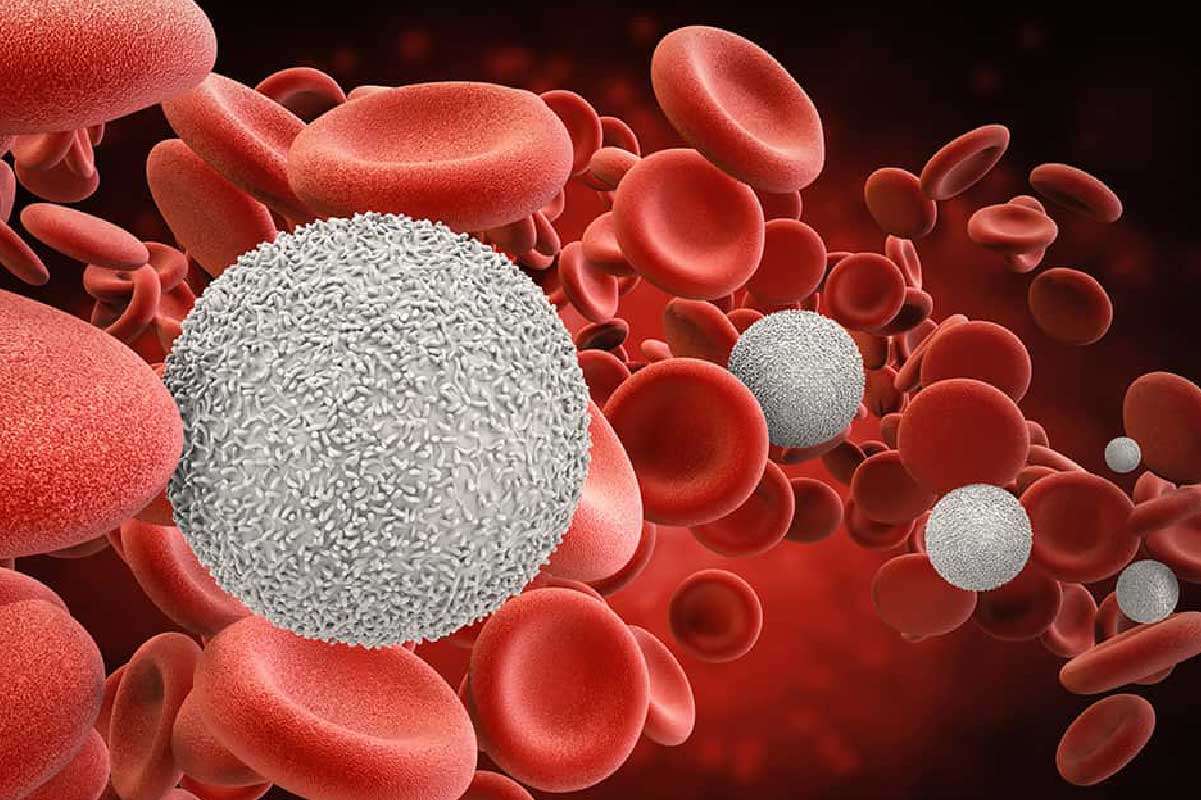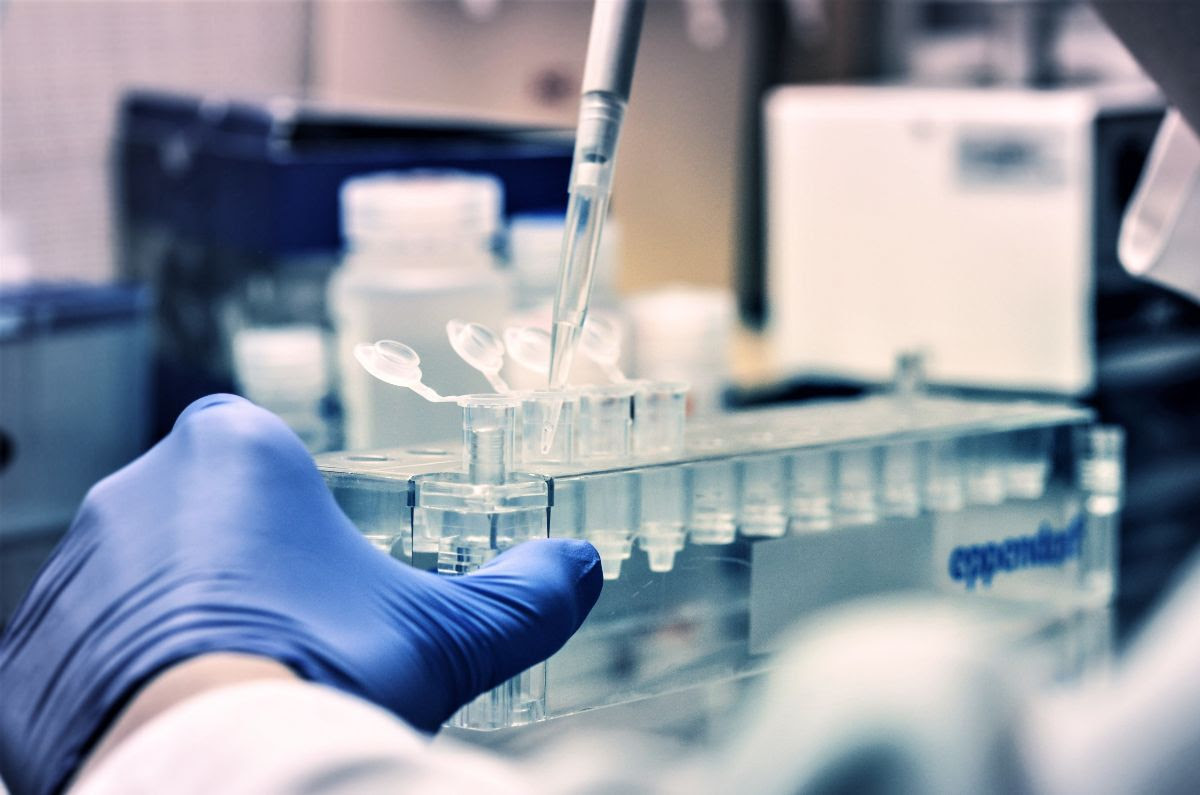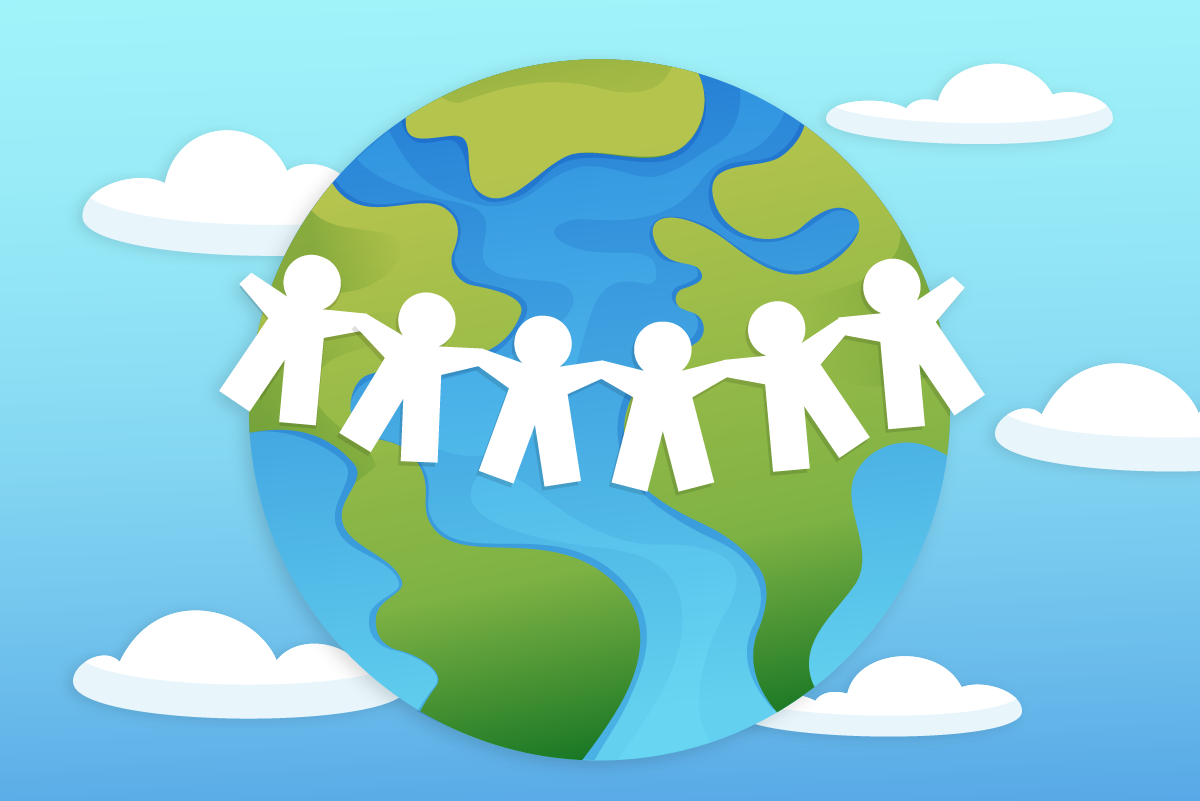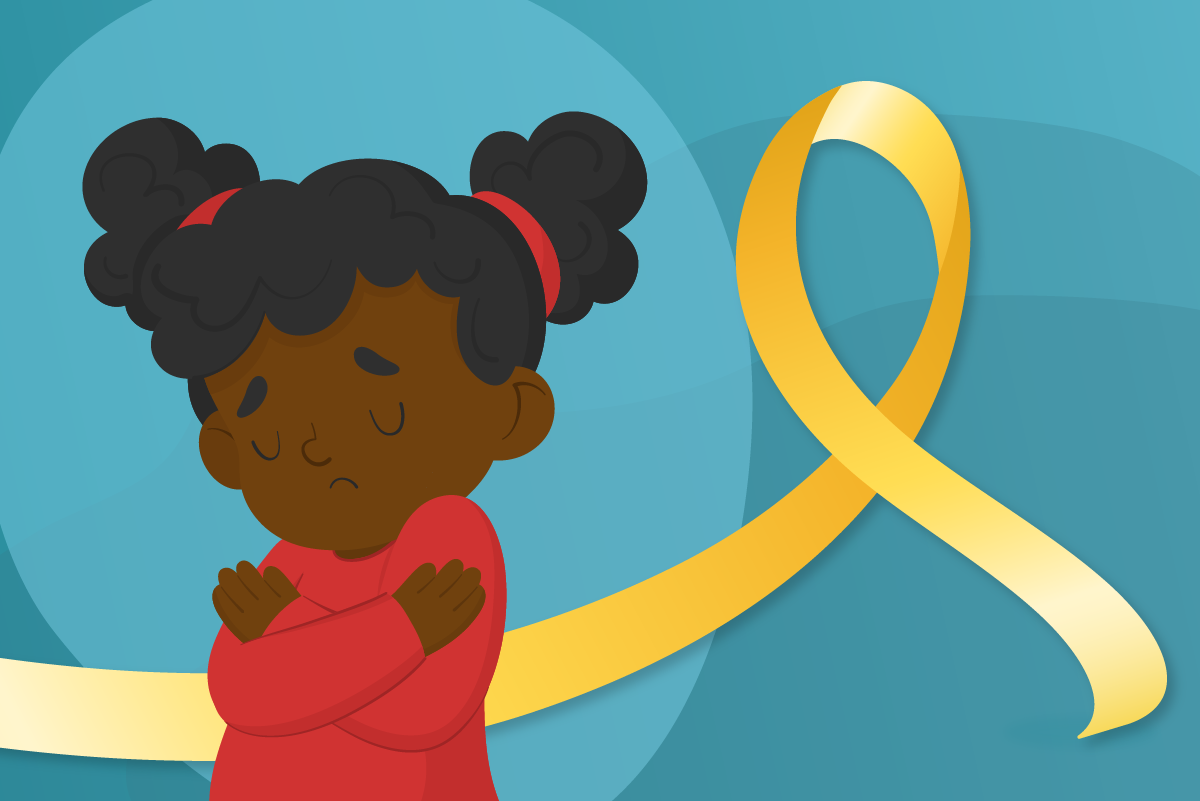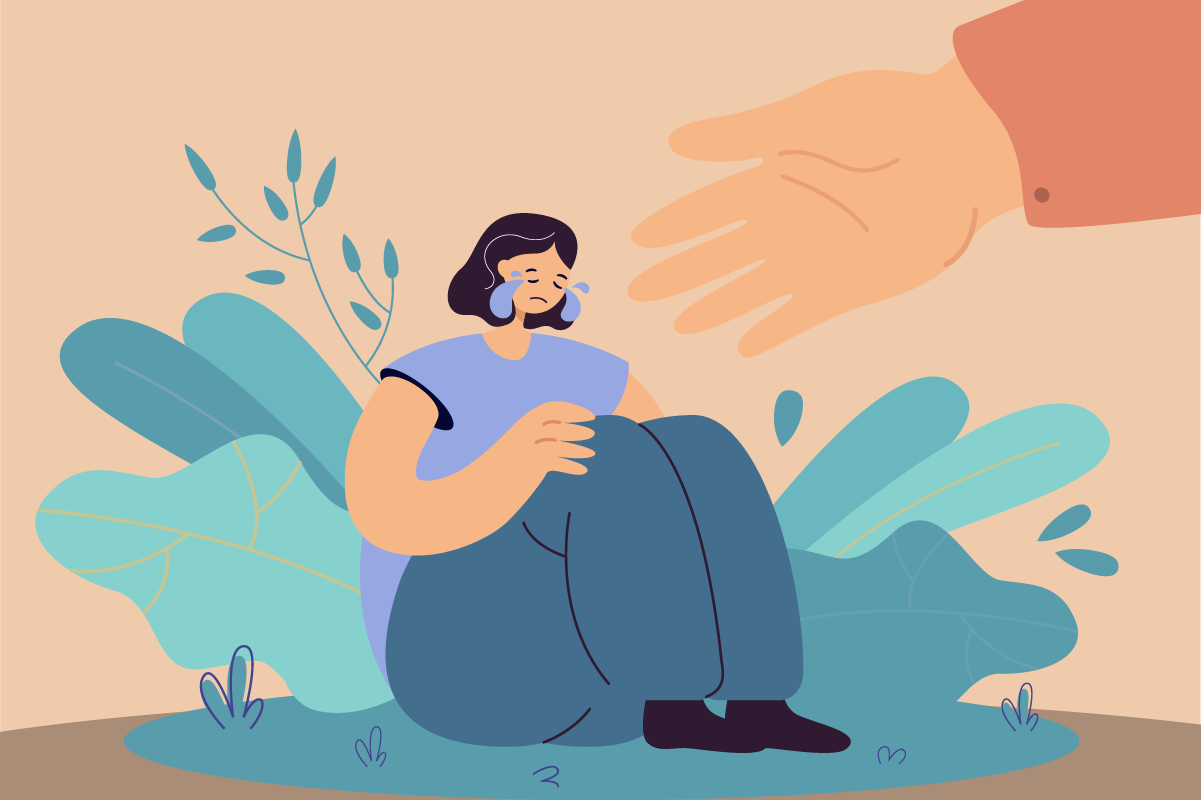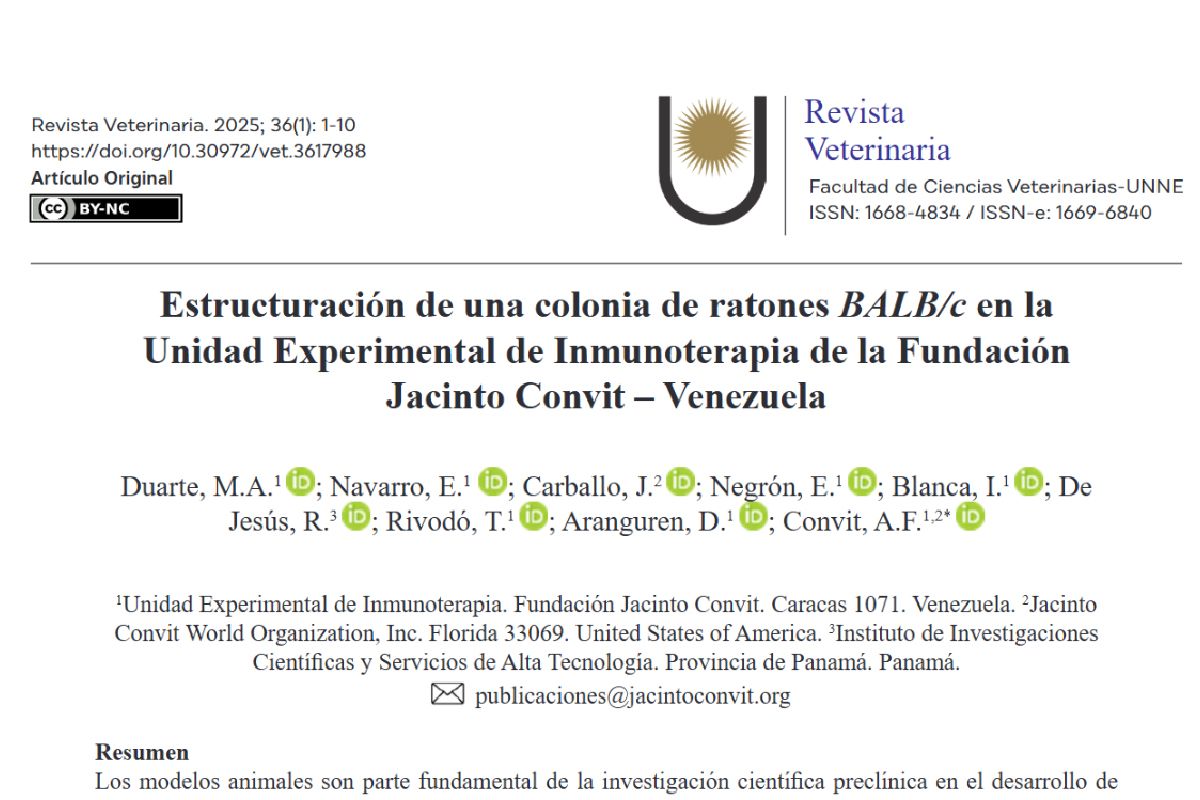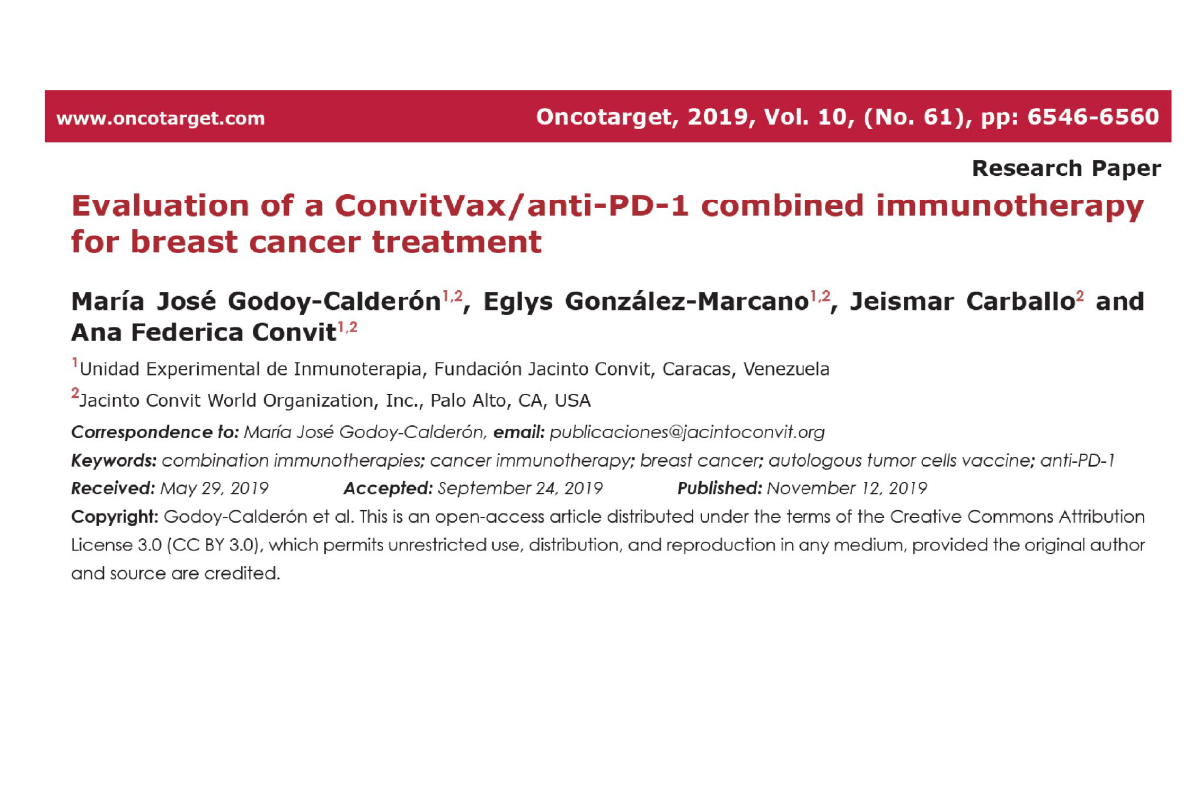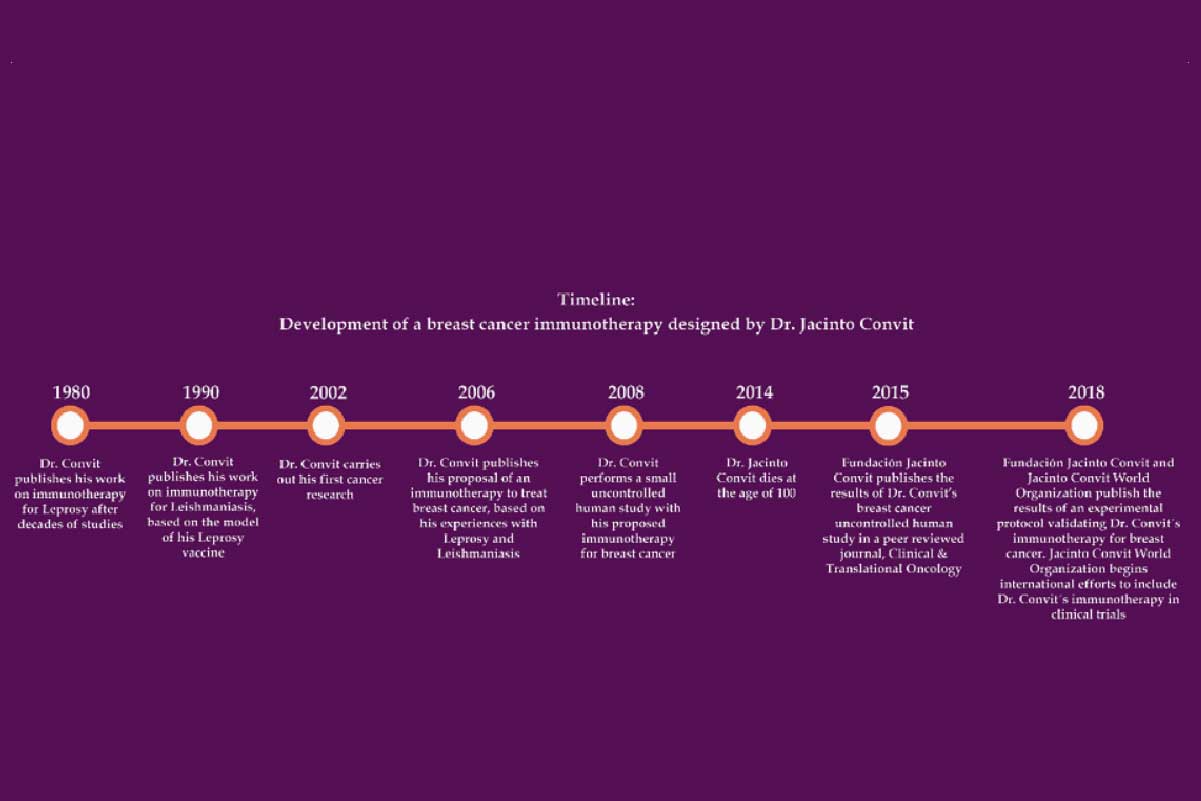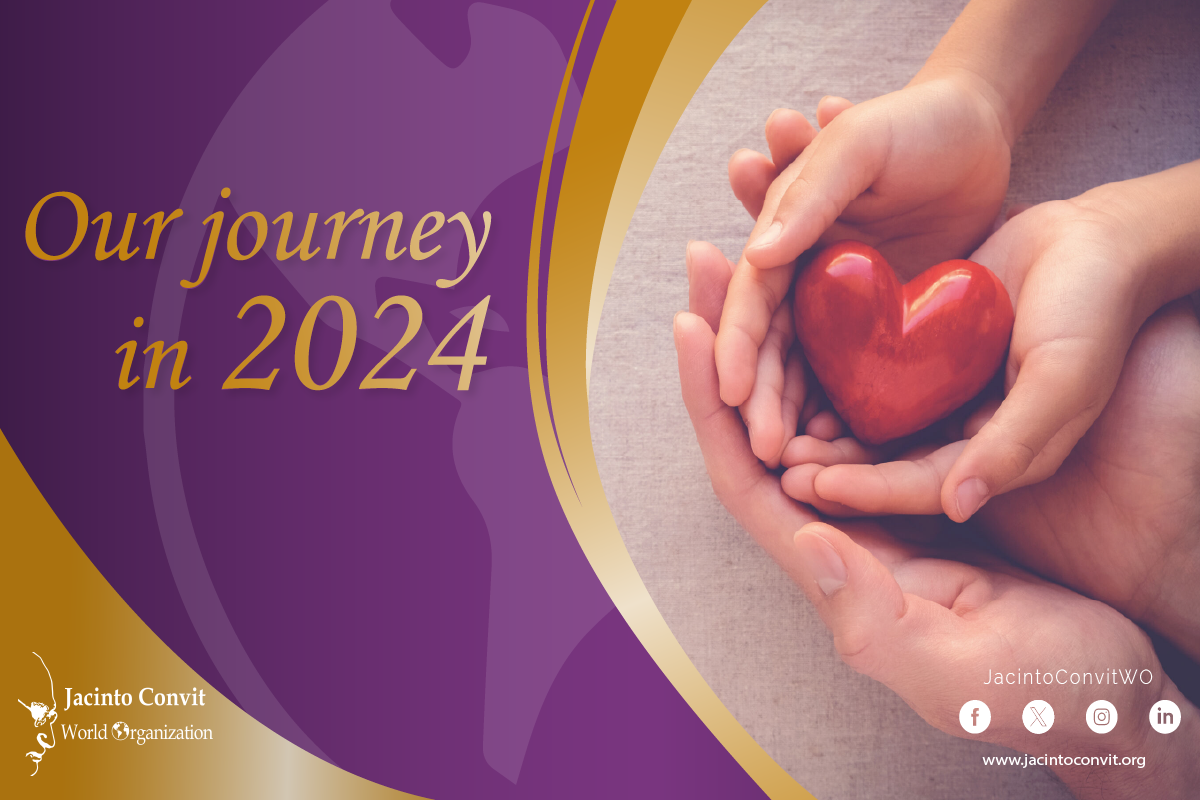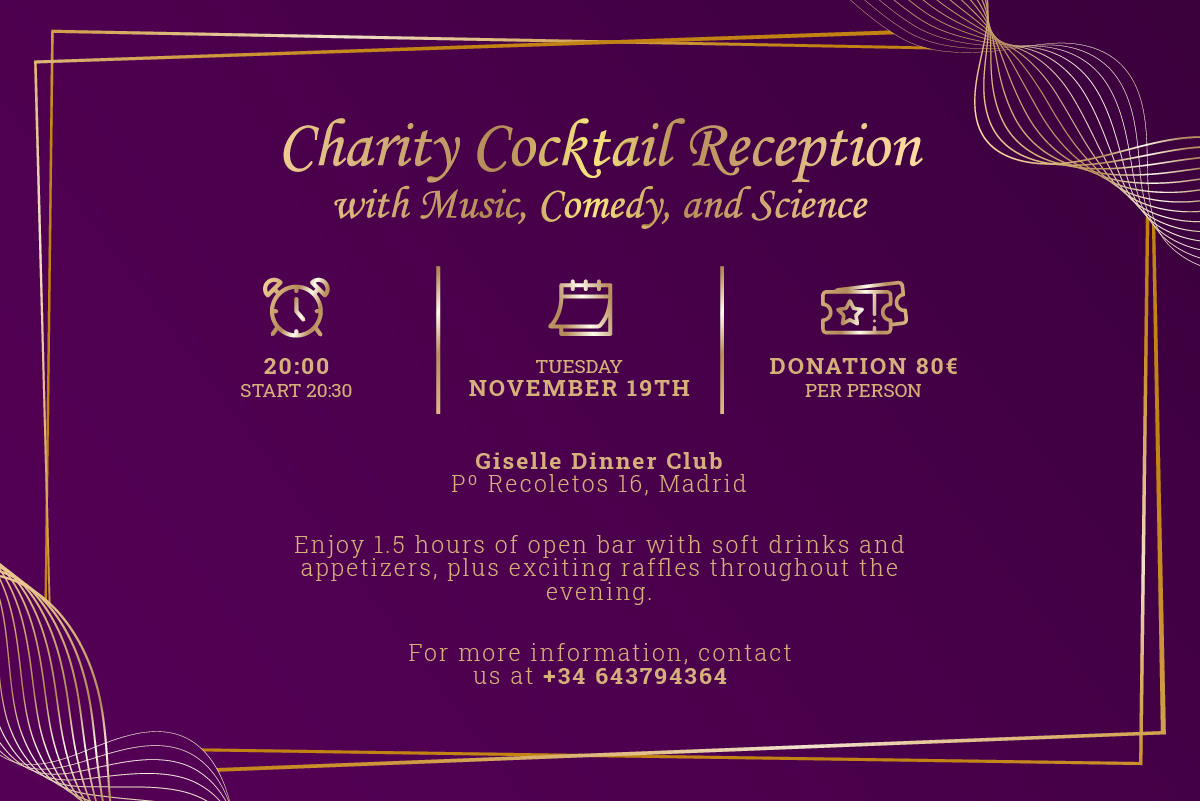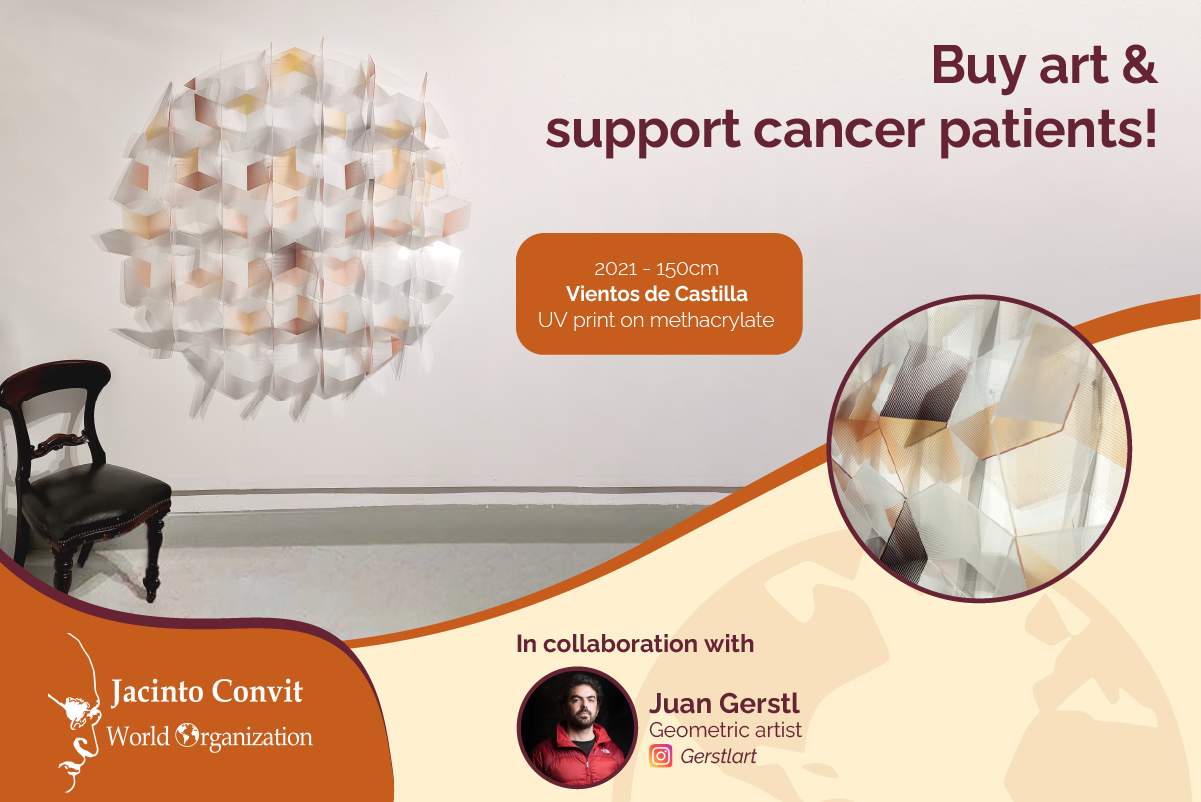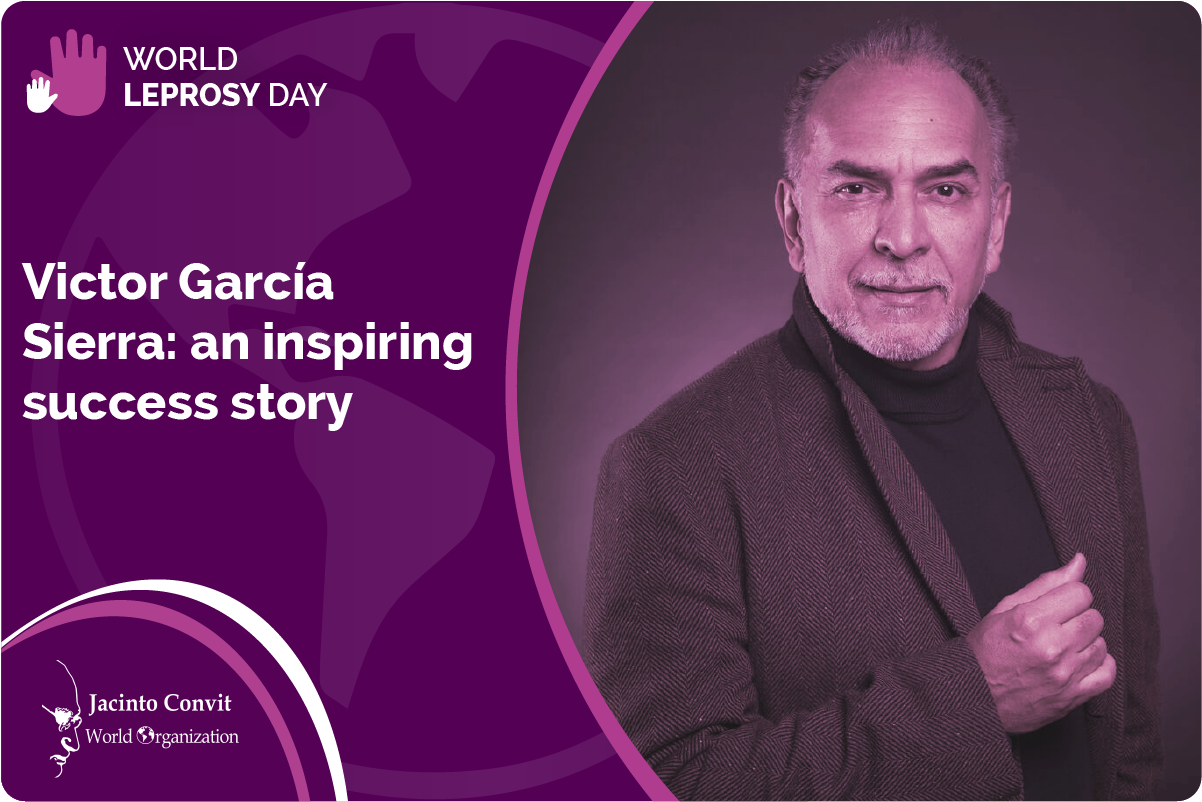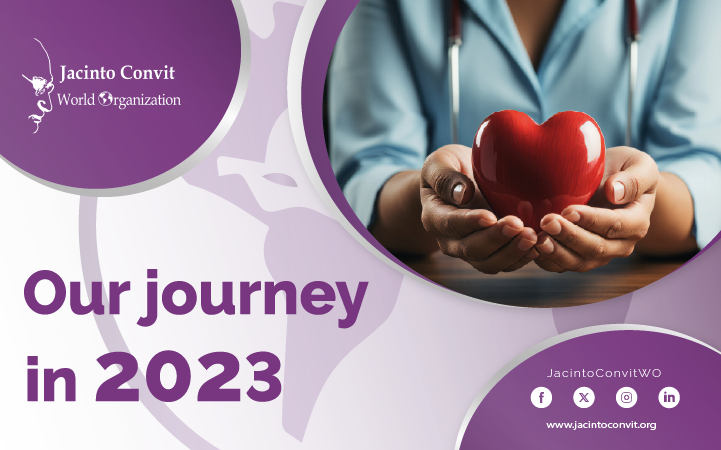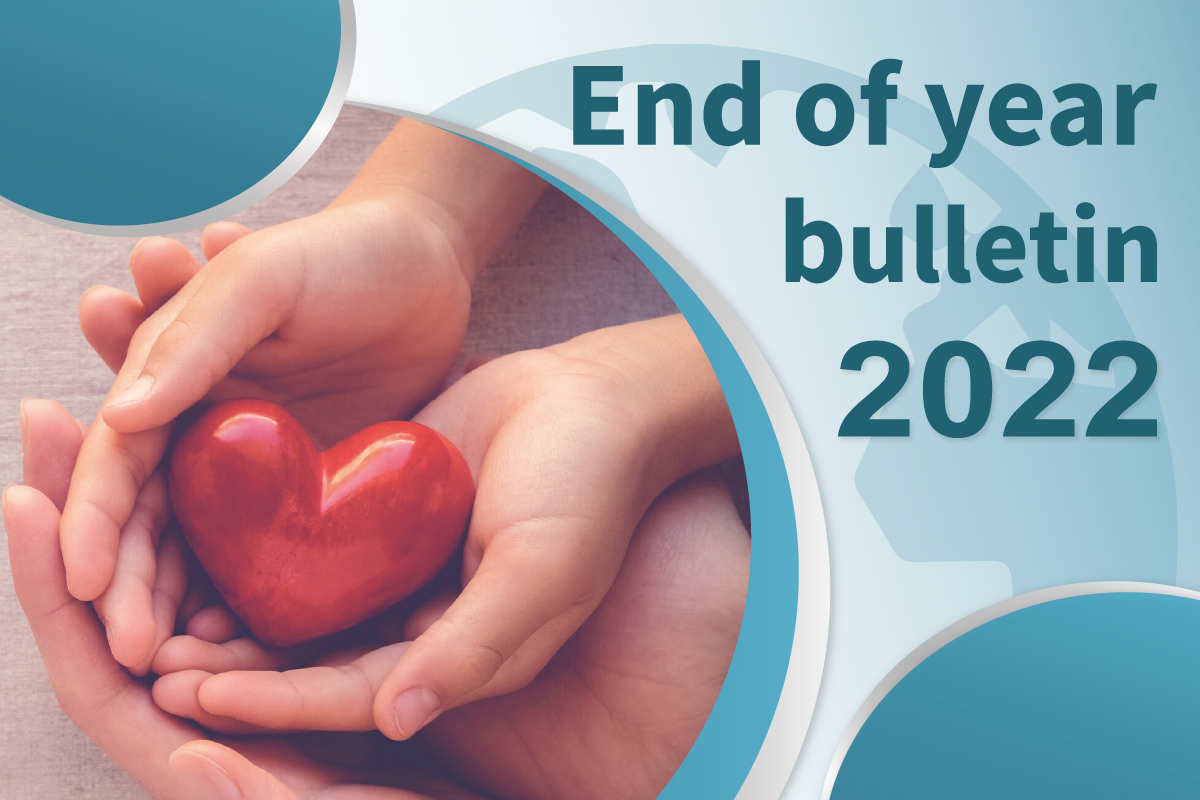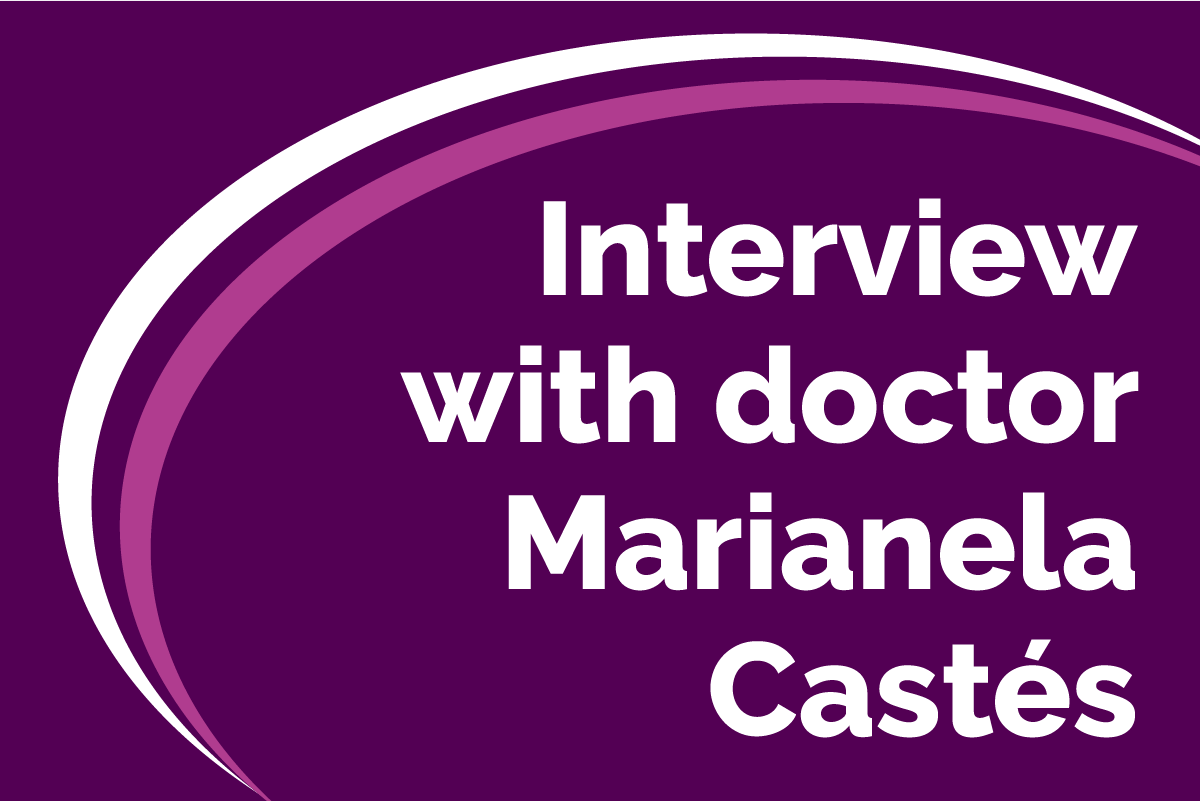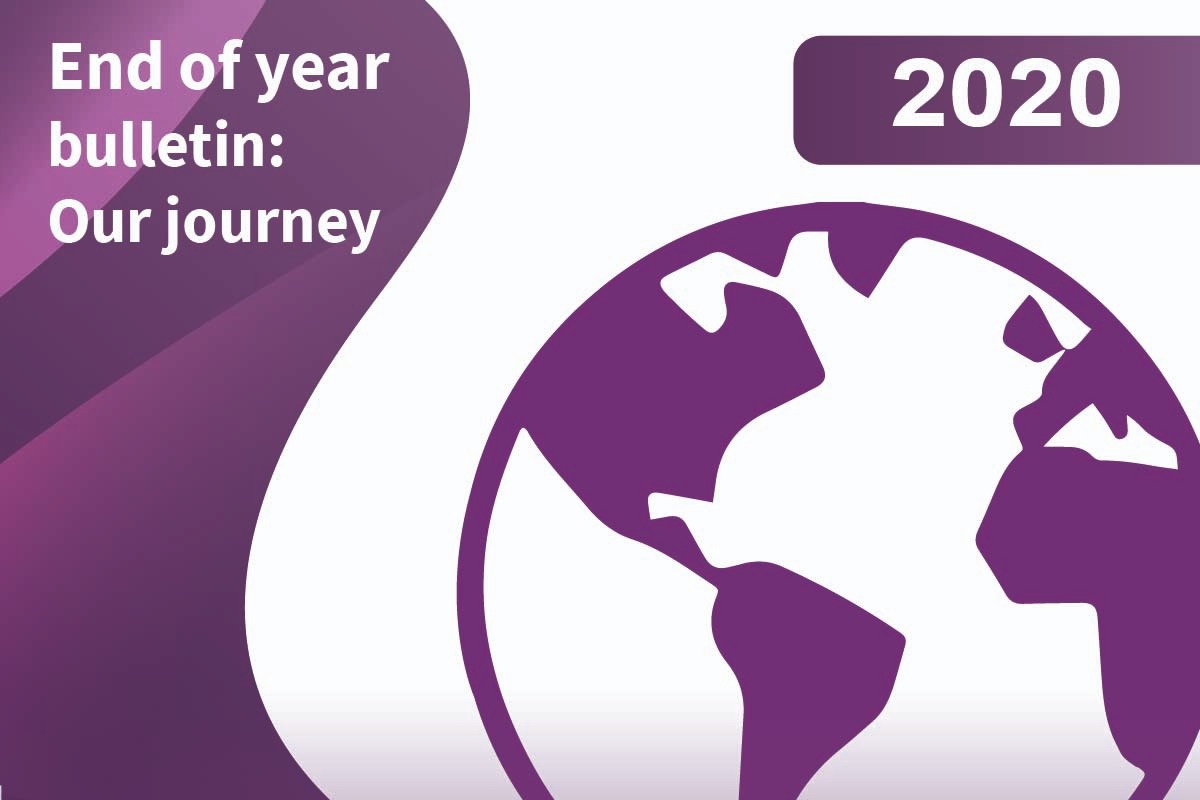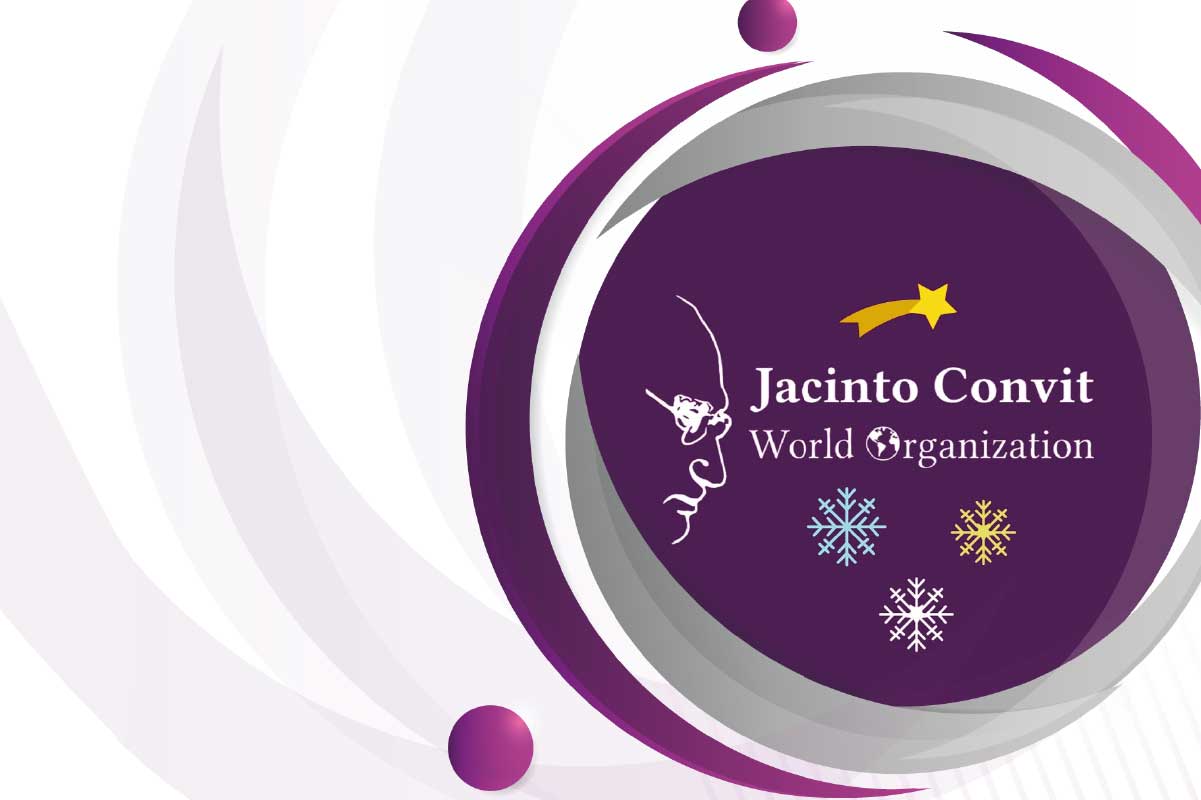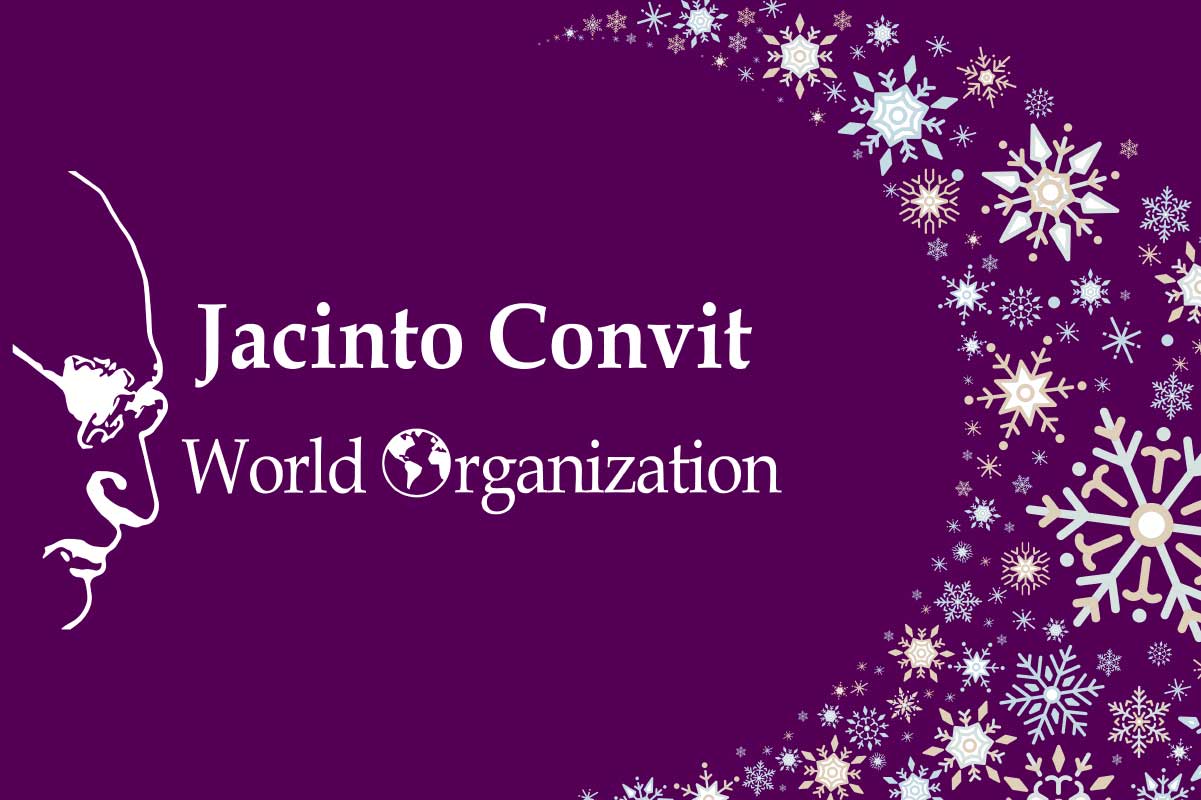CAR-T cell therapy involves taking a patient's immune cells (T cells), and engineering them in a laboratory to produce a special structure called a Chimeric Antigen Receptor (CAR). This structure enables the T cells to recognize and attack cancer cells.
Press ROOM
CAR-T cell therapy involves taking a patient's immune cells (T cells), and engineering them in a laboratory to produce a special structure called a Chimeric Antigen Receptor (CAR). This structure enables the T cells to recognize and attack cancer cells.
Stem cells are the body's master cells. They can differentiate into specialized cell types with specific functions, such as blood cells, brain cells, heart muscle cells, or bone cells, depending on their environment and the signals they receive.
When choosing a cancer treatment option, it is important to consider a range of factors, including the patient's overall health and medical history, the stage and type of cancer, and the potential benefits and risks of each treatment.
The main cause of cancer-related deaths in women globally is breast cancer (BC). It ranks as the second-leading cause of cancer-related death in women in industrialized countries and the primary cause in poor countries.
A vaccine is essentially a treatment that generates an immune response and helps combat various diseases by providing protection to patient specific cells by activating T cells and B cells to help fight off the disease and provide protection to the body.
Leishmaniasis is a neglected tropical disease (NTD) that is spread through sand flies in tropical and subtropical areas around the world.
Breast cancer, like all other cancers, is an uncontrolled growth of abnormal breast cells that are either malignant or benign. Benign tumors are not cancerous and therefore not life-threatening.
COVID-19 vaccines allow the immune system to develop antibodies against the virus prior to coming in contact with the illness. Vaccination exposes the body to infectious foreign antigens, which are the spike proteins of the SARS-CoV-2 that lead to the onset of antibody production and immune system activation.
The COVID-19 pandemic has affected the entire world in a drastic way, leading to over 3 million deaths and 132 million confirmed cases of infection. Unfortunately, some individuals, such as cancer patients, are more susceptible to catching the virus than others and are at a higher risk of severe infection...
Clinical trials are types of interventional research studies, conducted in order to test new emerging or already approved treatments to evaluate their effects on health outcomes...
Cancer vaccines are a form of immunotherapy that can help educate the immune system about what cancer cells “look like” so that it can recognize and eliminate them...
Leprosy, also known as Hansen’s disease, is a chronic infection caused by bacteria called Mycobacterium leprae. This bacteria multiplies very slowly and the incubation period can take a number of years...
Breast cancer is a group of diseases in which cells in breast tissue change and divide uncontrollably, typically resulting in a lump or mass. Breast cancer can begin in different areas of the breast, such as the ducts, lobules, and the tissue in between.
Leishmaniasis is a parasitic disease that is found in parts of the tropics, subtropics, and southern Europe. It is caused by infection with Leishmania parasites, which are spread by the bite of infected sand flies...
Solid tumors are an abnormal mass of tissue that usually does not contain cysts or liquid areas. These may be benign (not cancerous) or malignant (cancerous). Different types of solid tumors are named for the type of cells that form them. Examples of solid tumors are sarcomas, carcinomas, and lymphomas.
The human immunodeficiency virus (HIV) can lead to acquired immunodeficiency syndrome or AIDS if not treated. Unlike some other viruses, the human body can’t get rid of HIV completely, even with treatment. So once you get HIV, you have it for life...
Leukemia is a cancer of the early blood-forming cells; most often, it is of the white blood cells, but in some cases it starts in other blood cell types. There are several types of leukemia...
Molecular diagnostics is a field that merges molecular biology with medical testing. By analyzing a patient’s genetic code and their disease, molecular diagnostics offers the prospect of personalized medicine.
There are ways to stimulate the immune system to increase its effectiveness towards cancer. Immunotherapy, also known as biologic therapy or biotherapy, is a treatment that uses the body’s immune system to fight harmful substances.
Science series
While some risk factors are beyond our control, such as genetic makeup and age, adopting a healthy lifestyle and making informed dietary choices can significantly contribute to preventing the onset of cancer.
Living in a low-resource context can have a significant negative impact on health outcomes, according to recent research. Individuals living in areas with lower income, education, employment, and housing quality have been found to have lower survival rates when diagnosed with cancer.
Social life is beneficial for cancer patients in various aspects, such as in providing emotional support. Interactions with friends, families, co-workers, and other patients can alleviate stress and anxiety related to cancer and its treatment.
Diagnosis and treatment of cancer can be a stressful situation, not only for the children undergoing treatment but also for their parents and caregivers. Emotional support for parents of children with cancer is crucial, as it provides them with the necessary support to cope with the various emotional consequences of the disease.
Volunteerism focuses on providing an organized response to social needs, based on dedication, collaboration, and a commitment to the common good. It is the foundation of developing critical citizenship with increased expression of a social conscience.
Fundraising is defined as the process of seeking and gathering voluntary financial contributions from businesses, engaged individuals, charitable foundations, or governmental agencies. Most non-governmental organizations (NGOs), such as Jacinto Convit World Organization (JCWO), are reliant on the generosity of donors for some or all of their funding.
Leukemia is the most common cancer in children and teens, accounting for almost 1 out of 3 cancers. Most childhood leukemias are acute lymphocytic leukemia (ALL), while the remaining cases account for acute myeloid leukemia (AML). Chronic leukemias are rare.
Mental health problems are found in almost every country. However, reports suggest that perception and availability of treatments are varied in different regions, particularly between developed and developing countries. Know more here!
Infectious diseases are caused by microorganisms in our body such as viruses, bacteria or fungi, which are collectively called pathogens. Stigma is a negative response to human differences. Know more here!
Post-traumatic stress disorder (PTSD) is an anxiety problem that develops in some people after extremely traumatic events, such as combat, crime, an accident or natural disaster. Know more here!
Breast cancer is a type of cancer that starts in the breast; the cancer forms in either the lobules or the ducts of the breast. Lobules are the glands that produce milk and ducts are the pathways that bring the milk from the glands to the nipple. Cancer can also occur in the fatty tissue or the fibrous connective tissue within the breast.
NGOs are “legal or social entities created for the purpose of producing goods and services whose status does not permit them to be a source of income, profit or other financial gain for the units that establish, control or finance them” (System of National Accounts in 1993).
Social series
Animal models are a fundamental part of preclinical scientific research in the development of new therapies, including drugs and gene therapies. For such purposes, it is crucial to have an animal model that aligns with the study being conducted.
Breast cancer is the most common malignant tumor and the main cause of death in women worldwide. With increased knowledge regarding tumor escape mechanisms and advances in immunology, many new antitumor strategies make immunotherapy a promising approach for the treatment of this disease.
ConvitVax is a personalized vaccine for the treatment of breast cancer, composed of autologous tumor cells, bacillus Calmette-Guérin (BCG) and low concentrations of formalin...
Jacinto Convit World Organization (JCWO) is pleased to announce the publication of their latest work “Evaluation of a ConvitVax/anti-PD-1 combined immunotherapy for breast cancer treatment” in Oncotarget.
Since its inception, the Jacinto Convit World Organization has strived to help the most vulnerable, be useful to others and work for humanity, by continuing to develop a breast cancer immunotherapy (vaccine) designed by Dr. Jacinto Convit during the last years of his life.
Research articles
JCWO´s mission is to provide free access to modern diagnostics and innovative treatments to those who need it most, while training new generations of professionals.
Jacinto Convit World Organization (JCWO) invites you to an exclusive charity event to be held at the charming Gisselle restaurant, located in the heart of Madrid, Spain, on Tuesday, November 19, 2024.
By purchasing the art donated by Juan Gerstl, your contribution will make an impact on the lives of 200 vulnerable cancer patients in Venezuela, improving their survival rate, prognosis, and response to treatment.
Our team had the great opportunity to interview Victor García Sierra, a renowned bass-baritone, opera stage and artistic director of orchestras around the world, who was treated by Doctor Jacinto Convit for 17 consecutive years since he was just a child.
JCWO´s mission is providing access to adequate healthcare services and treatments to those who need it most, while training new generations of professionals. Our philosophy is based on Doctor Convit's values and humanistic approach to life as a whole.
JCWO´s mission is providing access to better healthcare services and treatments to those who need it most, while training new generations of professionals. Our philosophy is based on Doctor Convit's values and humanistic approach to life as a whole.
The need for students to be able to empathize with others, value diverse perspectives and cultures, understand how events around the world are interconnected, and solve problems that transcend borders has never been greater.
JCWO focal points are research and diagnostic testing of illnesses, as well as the development of new professionals via three high impact programs: Cancer Immunotherapy, Molecular Diagnostics and Internship.
We are pleased to share with you a brief review of our efforts and achievements during this complex year for the entire world.
Our team had the great opportunity to interview doctor Marianela Castés, a renowned chemist and immunologist who has devoted more than 30 years to the field of immunology.
We are pleased to share with you a brief review of our efforts and achievements during this complex year for the entire world.
Our team had the exceptional opportunity to interview doctor Francisco Kerdel-Vegas, a renowned dermatologist, researcher, diplomat and professor born in Venezuela, currently residing in Spain. Worked with doctor Convit for more than 25 years on infectious diseases.
We are pleased to end this new year of efforts and achievements by sharing with you a brief review of our journey during the year.
Summary of 2018 achievements for the Jacinto Convit World Organization.



